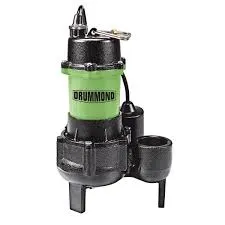Croatian
- Afrikaans
- Albanian
- Amharic
- Arabic
- Armenian
- Azerbaijani
- Basque
- Belarusian
- Bengali
- Bosnian
- Bulgarian
- Catalan
- Cebuano
- Corsican
- Croatian
- Czech
- Danish
- Dutch
- English
- Esperanto
- Estonian
- Finnish
- French
- Frisian
- Galician
- Georgian
- German
- Greek
- Gujarati
- Haitian Creole
- hausa
- hawaiian
- Hebrew
- Hindi
- Miao
- Hungarian
- Icelandic
- igbo
- Indonesian
- irish
- Italian
- Japanese
- Javanese
- Kannada
- kazakh
- Khmer
- Rwandese
- Korean
- Kurdish
- Kyrgyz
- Lao
- Latin
- Latvian
- Lithuanian
- Luxembourgish
- Macedonian
- Malgashi
- Malay
- Malayalam
- Maltese
- Maori
- Marathi
- Mongolian
- Myanmar
- Nepali
- Norwegian
- Norwegian
- Occitan
- Pashto
- Persian
- Polish
- Portuguese
- Punjabi
- Romanian
- Russian
- Samoan
- Scottish Gaelic
- Serbian
- Sesotho
- Shona
- Sindhi
- Sinhala
- Slovak
- Slovenian
- Somali
- Spanish
- Sundanese
- Swahili
- Swedish
- Tagalog
- Tajik
- Tamil
- Tatar
- Telugu
- Thai
- Turkish
- Turkmen
- Ukrainian
- Urdu
- Uighur
- Uzbek
- Vietnamese
- Welsh
- Bantu
- Yiddish
- Yoruba
- Zulu
Telephone: +86 13120555503
Email: frank@cypump.com
kol . 13, 2024 01:06 Back to list
Design and Efficiency of Slurry Screw Pumps for Optimal Fluid Transport in Industrial Applications
Understanding Slurry Screw Pumps Functionality and Applications
Slurry screw pumps are specialized equipment designed for handling liquid mixtures containing solids, commonly referred to as slurry. These pumps are crucial in industries such as mining, construction, wastewater treatment, and chemical manufacturing, where the transportation of abrasive, thick, or viscous materials is required. The effective functioning of slurry screw pumps ensures that processes run smoothly and efficiently, making them indispensable in the modern industrial landscape.
At the core of a slurry screw pump is a helical screw, which serves as the driving mechanism for moving the slurry. The design typically features a robust screw auger that rotates within a stationary casing. As the screw turns, it creates a low-pressure zone that draws the slurry into the pump and subsequently pushes it through the discharge outlet. This mechanism allows for the continuous and uniform flow of materials, which is essential when dealing with heterogeneous mixtures like slurries.
One of the key advantages of slurry screw pumps is their ability to handle high solid concentrations
. Unlike traditional centrifugal pumps, which may struggle to efficiently pump liquids with high solid content, slurry screw pumps are engineered to manage these challenging materials without significant wear or operational issues. The large diameter of the screw and the design of the casing allow for debris and particles to pass through without clogging, making them suitable for abrasive and corrosive materials.Moreover, slurry screw pumps exhibit a variety of operational advantages. They can accommodate a wide range of flow rates and pressures, making them versatile for different applications. This adaptability is beneficial in industries where the composition of the slurry may change or where varying operational demands exist. The pumps are often used in conjunction with other equipment, additional processing systems, and automated control mechanisms to enhance efficiency further.
slurry screw pump

In the mining industry, for example, slurry screw pumps play a critical role in transporting ore slurries from the mining site to processing plants. These slurries typically contain high concentrations of minerals mixed with water. The robustness of the slurry screw pump ensures that it can manage the harsh conditions often found in mining environments, such as abrasive materials and changing flow conditions.
Additionally, in wastewater treatment facilities, these pumps are vital for handling thick sludge produced during the treatment process. Their ability to maintain a steady flow of thick, viscous materials helps ensure that the treatment plants can operate effectively, preventing bottlenecks and operational disruptions.
The design and materials used in the construction of slurry screw pumps also contribute to their longevity and reliability. Many manufacturers use high-chromium alloys or rubber linings to enhance the wear resistance of the pumps. This is particularly important given the abrasive nature of many slurries. Routine maintenance and monitoring of these pumps can further extend their service life, ensuring operational continuity.
In summary, slurry screw pumps are essential components in various industrial applications where the efficient handling of slurry is required. Their unique design allows them to overcome many challenges associated with pumping solid-liquid mixtures, ensuring that industries can meet their operational demands without interruption. With their robust construction, adaptability, and effectiveness in challenging conditions, slurry screw pumps will continue to be an invaluable asset in multiple sectors, driving efficiency and productivity.
-
pipeline pump - Chi Yuan Pumps Co., LTD.|High Efficiency&Low Noise
NewsJul.31,2025
-
ISG Series Vertical Pipeline Pump - Chi Yuan Pumps Co., LTD.|High Efficiency, Energy Saving, Low Noise
NewsJul.30,2025
-
ISG Series Vertical Pipeline Pump- Chi Yuan Pumps|High Efficiency&Low Noise
NewsJul.30,2025
-
ISG Series Vertical Pipeline Pump-Chi Yuan Pumps Co., LTD.|High Efficiency&Energy Conservation
NewsJul.30,2025
-
ISG Series Vertical Pipeline Pump - Chi Yuan Pumps Co., LTD.|Advanced Hydraulic Design&Energy-Efficient Solutions
NewsJul.30,2025
-
ISG Series Vertical Pipeline Pump - Chi Yuan Pumps Co., LTD.
NewsJul.30,2025










